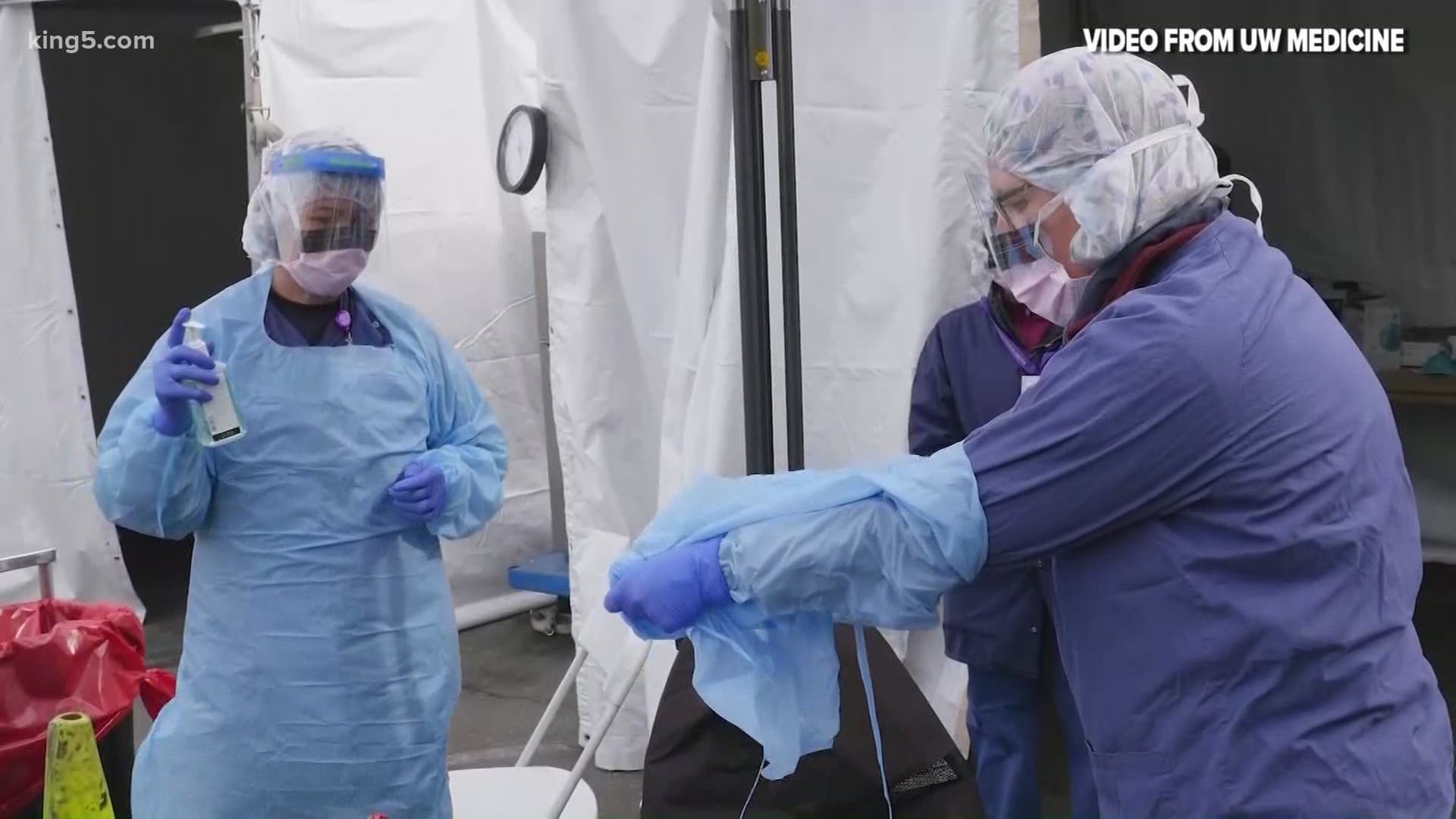TACOMA, Wash. — While Washington state’s curve is flattening, state data shows some communities were hit harder by the virus. Health officials say certain communities may need to take extra precautions as the state reopens.
According to state data, Hispanics make up 33% of Washington’s cases, which is a shocking number to health officials considering Latinos only account for 13% of the state’s population.
African Americans make up 9% of the state’s cases and account for 8% of its total population.
The state says race and ethnicity data is still unknown for 33% of state coronavirus cases.
Doctors were shocked to learn race and ethnicity data wasn’t taken at many testing sites until mid-March, which is when a group of doctors at Harborview Medical Center noticed an uptick in limited English proficient patients.
“So, if we’re going to get a handle on it and really, really flatten the curve then we have to know what the burden of the disease is in these communities,” said Dr. Paula Houston, director of Healthcare Equity at UW Medicine.
Since then, people being tested for coronavirus have been asked about their race, ethnicity and housing status. Houston says they’re also looking at whether people can safely isolate alone at home and whether they have easy access to testing.
In April, UW Medicine opened the area’s first walk-up, no appointment necessary testing site at the Atlantic City Boat Ramp in Seattle’s Rainier Beach neighborhood. Houston says the site, which is open on Wednesdays and Saturdays, has been popular but could not comment on specific numbers.
Houston said UW Medicine, along with community partners are currently looking at data to identify a second location for a walk-up testing site, and there will soon be two mobile van testing sites traveling the Pacific Northwest.
As the state begins to open, Houston says doctors will work with community health groups to make sure communities know they may still be at a higher risk for the virus.
“While we've seen progress, we have to be cautious, because we just started testing these vulnerable communities," said Houston.

